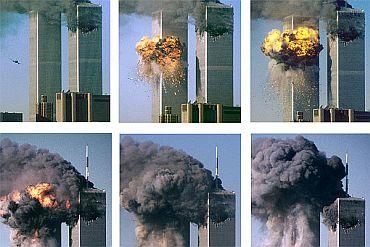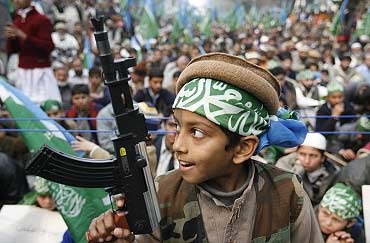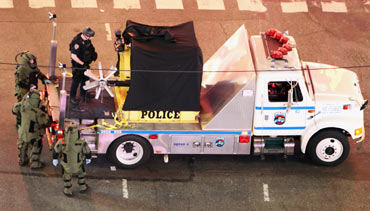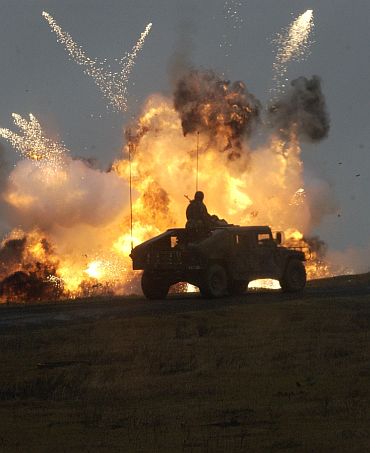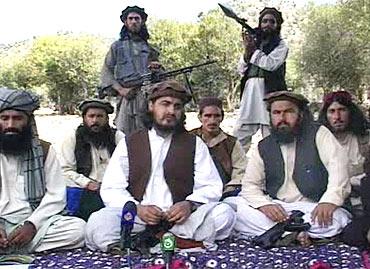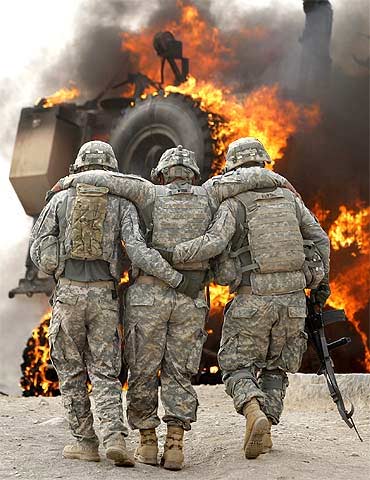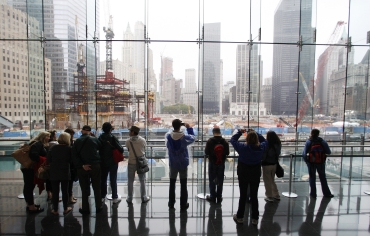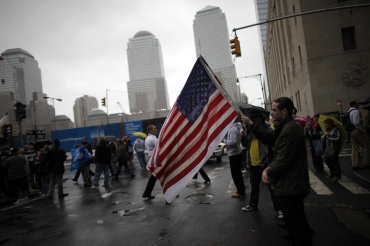 | « Back to article | Print this article |
On US not witnessing a single attack after 9/11
As yet another bomb blast at the Delhi high court coincides with a decade of the 9/11 terror strike in the United States, Fareed Zakaria, editor-at-large, Time magazine, in an interview with CNN-IBN, talks about the lessons for India from American experience and the terror threat to the world.
There are two things. Firstly, the very vigorous counter-terrorism strategy implemented through the cooperation of various countries across the world including India. After 9/11, countries started taking this problem much more seriously than they had, elevating it as a national security threat than a law enforcement threat.
That means you got intelligence agencies working, the New York Police Department, and the Federal Bureau of Investigation reaching out to their counterparts in other countries.
Once you start tracking the terrorists, their money and chasing them in the mountains of Afghanistan and Pakistan it's not easy to engage in large-scale terrorism. Though India has not been spared, the threat from these groups has diminished everywhere.
We have foiled many terror plans including one in India. They have been able to execute relatively very few. That means you have to keep the pressure up and engage in rigorous counter terrorism.
The American Muslim population is not radicalised in the way that parts of Europe Muslim populations is. So you don't have breeding ground or a support system for the radical jihadi groups.
I think this is one area where India needs to pay more attention. There is a dissatisfaction is some faction of the Muslim population. There is radicalism that has infected some part of Muslim population everywhere including India.
Part of it is genuine problems of discrimination, alienation and disaffection. I think the best strategy is the strategy of intolerance toward any kind of militancy or jihadi attitude.
Also the one that works hard is of integration of the Muslim population into the party polity which America has been able to do quite successfully with all its immigrant groups.
Click NEXT to read further...
On terrorism being linked to Muslim population in India
As a matter of reporting, India's counter-terrorism operations are not regarded very high. This is an area India has not focused on a great deal.
India has not done good because as it has a large Muslim population, but again India's police force is pathetic. Look at Mumbai -- India's police force is not a police force -- it is a patronage job that is given to people to support communities, they don't know how to police.
The idea that they would reach out to community to find out the radical elements is a stretch. This is one area where modernisation is a very pressing urgency."
Click NEXT to read further...On lessons for India from American experience
You need to have a much stronger police force. The reason that the US has a strong police structure is because it has evolved many communities outreach programmes in these years.
That means they go into the community and know the issues what animate them. When there is a bad element they can find it out, and address the areas of concern. That is to be combined with some sort of toughness for sure.
Even through this period of depression, crime rates have fallen in every major city. The second factor is integration of these communities. There is a feeling among few elements within the Muslim population that they are the second-class citizens.
The more that infests, the worse it is. In particular, the Muslims in Gujarat don't feel included. It means a small group within the community could provide sustenance to the jihadi elements.
Finally, on counter-terrorism, Indian intelligence does not have the technological tools; the US has. But India has the human capability that US could never have. So I say policing, integration and counter terrorism."
Click NEXT to read further...
On the success of the war on terror
"It has been a success. The Al Qaeda has been vastly diminished. After 9/11, we had a fear that there would be a wave of terrorism and radicalism in the Muslim world, but Al Qaeda has been battered to the most.
The Islamic World has got a wake up call and realised that it has got cancers within its myths. The Arab spring has realised that there is something wrong with their political culture.
They have on one hand highly-repressive anarchy and on the other hand perhaps equally repressive opposition or jihadi elements that can return them to the 7th century.
Click NEXT to read further...
On mushrooming of terrorism in Pakistan
The George Bush administration's decision to focus on Iraq early and the kind of resources they allocated for it was, in retrospect, a mistake. But the real danger was Pakistan, and there was much danger in Pakistan.
There should have been much focus on Pakistan. But there was no ideal policy in Pakistan, and you have to use the limited resources you have, the influence of the government, which play a double game.
But it would be fair to say that Pakistan is the only place where there has not been significant progress. But now perhaps the Pakistani government -- both civilian and military -- has learnt that they pay a heavy price for their double game.
This does not mean it has stopped, but they have gone against some terror groups. But Pakistan's support to Jihadi groups goes back to the 1940s and significantly to the 1960s.
So what has been going on for four decades is not that easy to turn off in a likely situation. Still, there is a hope that there are some growing forces those realise that they cannot be anymore recognised to the world as the breeding ground for jihadi groups.
The more this generation grows, one hopes that there would be less of terrorism.
Click NEXT to read further...On West's relation with the Muslim World
The clash of civilisation is within the Islamic world and not between the West and the Islamic nations. There is a huge debate going on between the modernisers, moderates, extremists and the jihadis.
The US was interested to see when the millions of people went out on the streets. On the last day in Egypt, the day Mubarak fell, there were 8 million people on streets.
Perhaps it was probably the largest non-violent demonstration on the streets in history. They were asking for jobs, justice, dignity, democracy and freedom.
There America was someway irrelevant. Yes the Arabs are not happy with the America's foreign policy. But there is hardly any clash of civilisation.
Click NEXT to read further...On US withdrawal from Afghanistan-Pakistan
What is keeping Al Qaeda at bay is the counter-terrorism strategy and not the Afghanistan occupation. The US withdrawal is not withdrawal, as such to presume. The occupation of Afghanistan is a pointless distraction.
What keeps Al Qaeda at bay is the drone attacks, raids and the intelligence gathering. That would continue. But as US forces have withdrawn, there would be a power vacuum and it would be first filled by Pakistan.
But here India would have to move to balance that Pakistani influence, by maintaining a major presence in Afghanistan. India has good relations with Afghanistan, and it has to play a big role in the regional solution.
India's interest is in stability. But it should openly say that it is going to play a role. India will have to find out how to protect and strengthen its position in the region without being ashamed of it."
Click NEXT to read further...
On 10 years after 9/11
The world is much safer now. The government is paying much attention now. The international cooperation is counter-terrorism campaign makes things difficult for these guys to do things.
The implementation of technology is going to remain as a challenge. There has been a democratisation of violence over the last 20 years. When we started the 9/11 probe, the whole focus was to know them and to know why they hit us.
But today, after 10 years the focus is more about us and about whether we are genuinely safer. 9/11 began with obsession about Muslim world, terrorism and Al Qaeda, but it has ended with the obsession for America.
But still there is a sense in America that we have gone on a 10-year adventure that has distracted us from some genuine concerns.
Click NEXT to read further...
On citizens liberty in US after 9/11
The US is still the place in Western world with strongest protection for the individual liberties. You cannot compare the powers of the French government with that of the US government. The British government has enormous police power.
The Indian government has vast police power. But the US has a strong civil right culture and constitutional tradition. There is one particular area of concern where if the government declares someone an enemy combatant, that person looses all rights.
That is troubling. But largely, the US is a place where individual rights are secured. The people need to recognise that beyond rhetoric.
